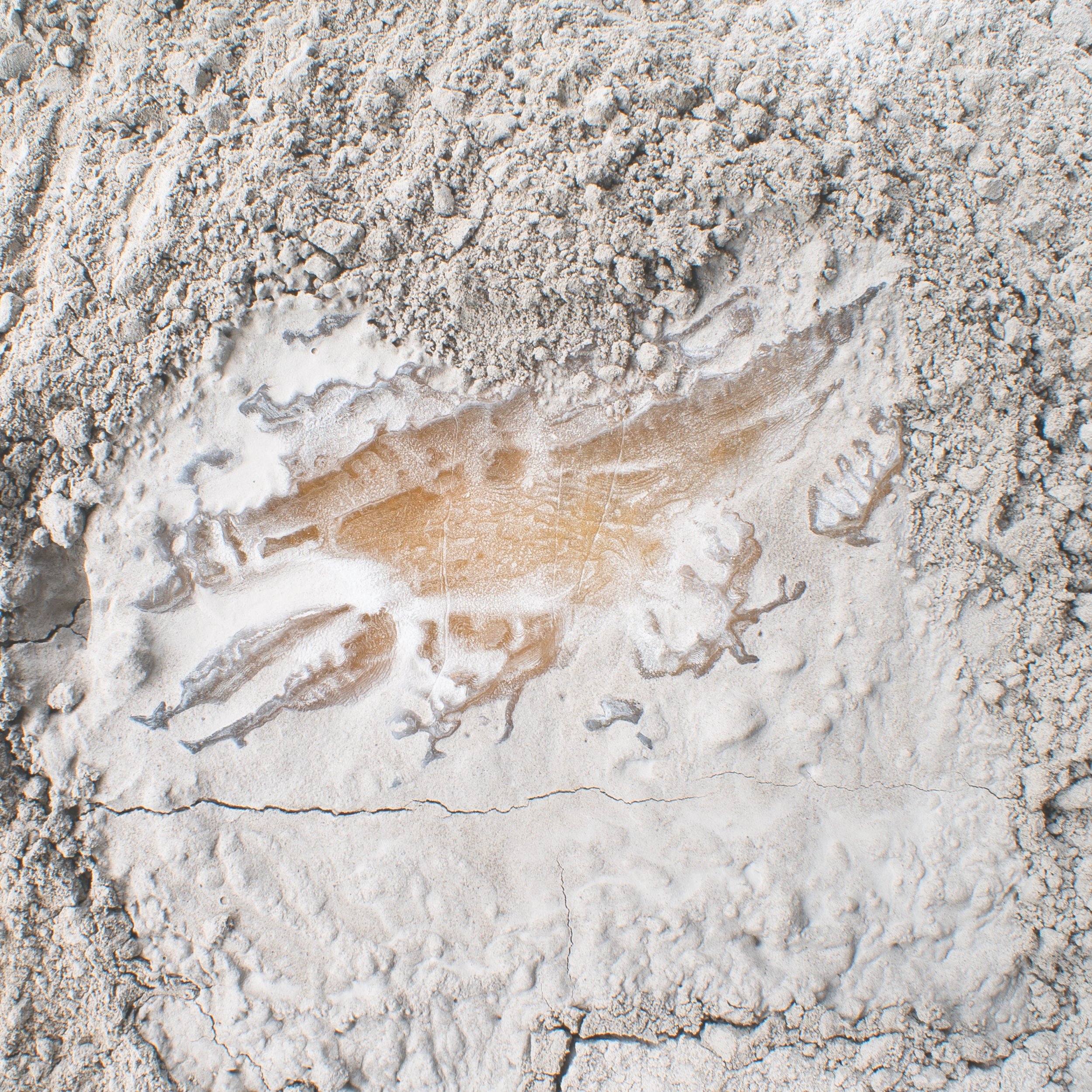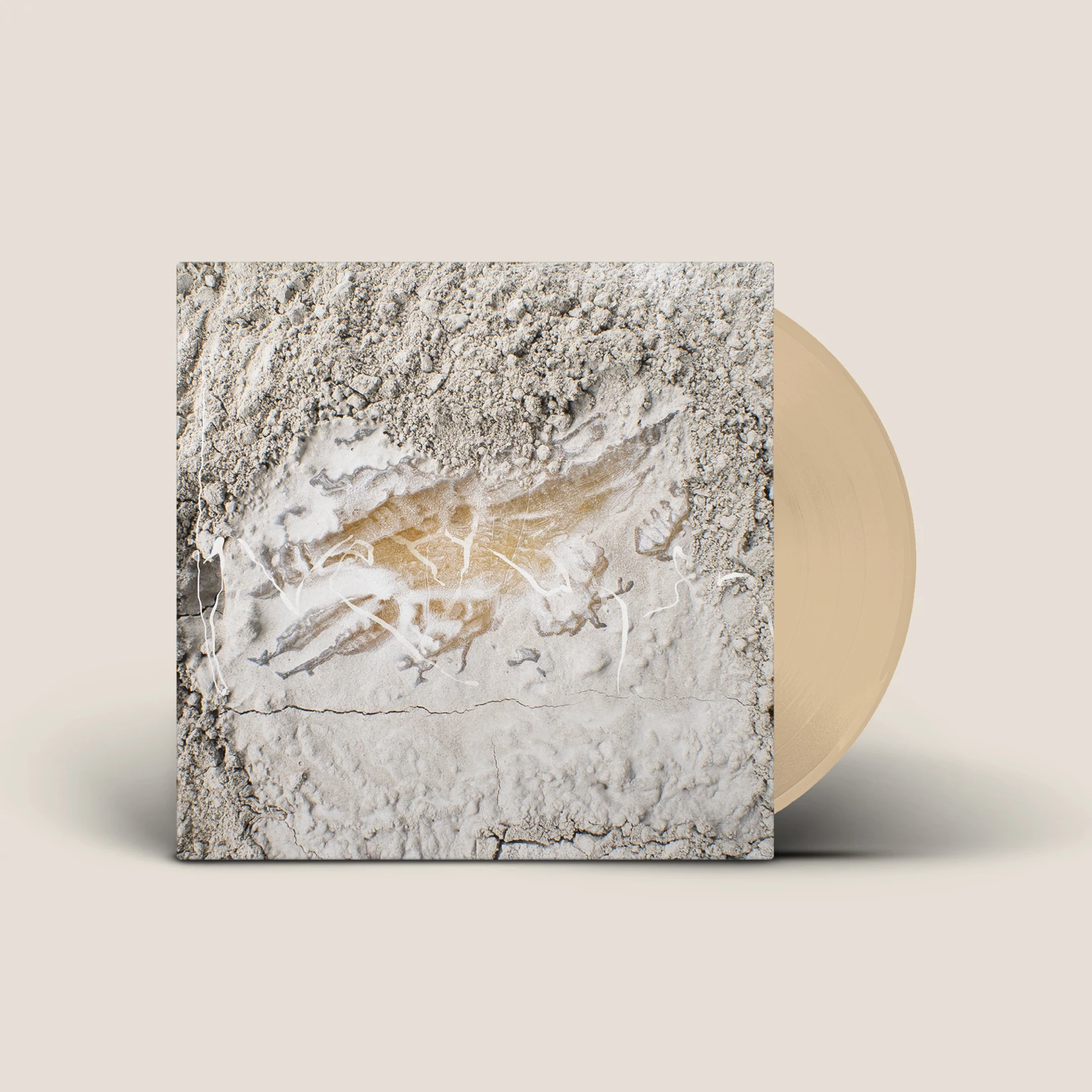There are just three sounds found on Everywhen, the new album from Canadian wildlife recordist, composer, and vocalist Jonathan Kawchuk: human voice, sine tones from a synthesizer, and the Rocky Mountains near Kananaskis, Alberta. Recorded painstakingly in Dolby Atmos, it is the product of eight years of direct relationship with the trees, stones, streams, grasses, grizzly bears, birds, rabbits, elk, and all other things that call the enormous, humbling mountains home. It is a harsh, anxious, tactile, heavenly, collage-based work of found sound and vocals, of breath and wind and space. It is at once deeply unsettling and supremely calming. It is inspired by and carries the philosophies of athleticism, transcendental black metal, the unfeeling amorality of nature. Everywhen is not a record about a place. It is a record by a place.
“When I’m in the Rockies, I would love if I could just press my hand into a piece of rock, and the boundary between it and my body dissolve,” says Kawchuk. “I think the desire for my body to join that place is also a desire for my sense of time to melt into it and away as well. But I can’t. So this record is the next best thing.”
Everywhen, Kawchuk says, is not about “the brush strokes of the forest,” but the spaces in between its subjects. “For me, the magic of the thing is how things reverberate through and around objects rather than the actual distinct sound of a forest coming from a source,” he says.The record is in part a rebuke of anthropocentric renderings of the Rockies. “I definitely have a chip on my shoulder about portrayals of nature as like calm or mothering, or any one thing,” says Kawchuk. “When I’m in the Rockies, there’s this sort of salty sweet, brackish feeling of danger and anxiety and total calm, and your body is sort of back to stasis. Nature is often talked about in either this nurturing, meditative way, or like ‘nature is brutal, suffering is all around you.’ What’s interesting to me is that it’s everything at once.”To create Everywhen, the follow up to Kawchuk’s 2018 debut release North, Kawchuk first recorded vocals in Toronto and Montreal while collecting vocal stem tracks from collaborators, including Toronto jazz vocalist Jocelyn Barth, vocalist Eric Séguin, and vocalists from sludge metal band Thou and grindcore outfit Full of Hell. Each of their voices were recorded in isolation with no effects or processing to ensure they sounded completely dry.The next step was to play these tracks aloud in the mountains in surround sound, let it reverberate, and record the playback. To capture the full breadth of the environment’s reality, Kawchuk was determined to record in 3D, which meant playing the tracks through 7 speakers and recording with more than 11 microphones. Kawchuk consulted locals, parks staff, weather reports, flight paths, and acoustic ecologists to determine the best place to record, eventually settling on an offseason campsite near Kananaskis. He would load up his car with gear, drive to the site, and set up for hours. Once noise pollution from helicopters, cars, and trains subsided, he’d press play and record, gathering impulse responses of the environment as well to map its natural reverb and architecture. Then he’d pack up—again, for hours—to drive home. Rinse and repeat for days.
Each track on the record went through this process. This produced individual track sizes that stretched upwards of 120 GB, which presented logistical problems for every step of finishing the record. Kawchuk consulted with Dolby, and connected with the few other musicians around the world who have recorded music in Dolby Atmos. When the time came to mix and master the record, COVID hit, so Kawchuk and his collaborator Justin Gray had to figure out how to finish the project remotely. This included using experimental, pre-market software. “We had to invent a ton of stuff,” says Kawchuk. “Everything was the hard way.”
The intention was never to make an extremely technical record. “But sometimes National Geographic has to invent a new camera not because they like new tech, but because that’s the only way of getting the shot they have in mind,” says Kawchuk. “We ended up going to some real extremes.” Everywhen is likely the first time music has been played back and recorded in this way. Creating this way is indeed extreme, but philosophy dictated this as the essential path. “Any field work is an interaction, a conversation,” he says. “Recording a space changes it. It is a two-way system, it is recursive. There is something that feels much better to me about truly interacting with a place than gazing frantically at nature and making some sort of outlandish claim that a piece was inspired by it.”This relationship extended to the album’s artwork, too. Kawchuk took satellite data of the mountains he recorded and turned it into a 3D model, and sent pine resin and limestone powder to Montreal artist Tracy Maurice, who cast them into models of the Bow Valley. Digital artist Brad Necyk turned fir trees into glass forests for the LP cover art and music video for lead single “Solar Plexus.”
The culmination of these things is a record that is visceral and real, not spiritual or abstract. “Solar Plexus” begins with pure mountain sound before transitioning to solely studio audio, opening on an impulse response capture of the Rockies before Barth’s voice echoes through the space, slinking between two notes. A chorus of voices join in harmony before a violent rush of breaths rise, then snap into silence. Synths pierce and thump as the voices gather momentum, building to pummeling climaxes followed by unsettled peace. Second single “Syrinx,” which is the larynx of a bird, opens the record, stirring with mountain life before a lone voice joins, at once a part of and apart from its environment, alienated but at home before percussive synth and heaving, exhausted breathwork claw at the track’s borders. Final single and album closer “Everywwhen” centers on a descending synth pattern for a moment before a pounding, anxious, totalizing single note thrashes and snarls overtop. Harmonized voices, in all their earthly beauty and fragility, sit atop the cacophony, like boats thrashed in a storm. The sensation is tremendous and arresting, in part because “Everywwhen” was engineered such that it plays much louder than the rest of the record
The mountains with which Kawchuk has collaborated on Everywhen will not exist forever. They may change in a thousand years. The climate crisis may change them much sooner. These are the stakes for Kawchuk: “If we are so royally unfortunate as to lose them, then I want to have preserved a record of what it felt like to be a person in that place.”

